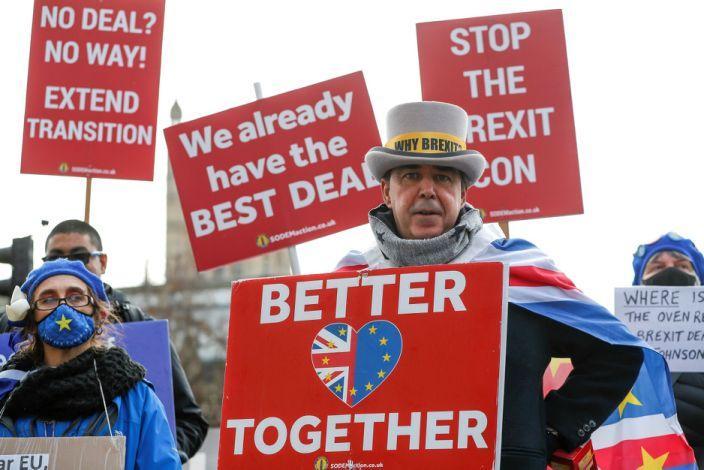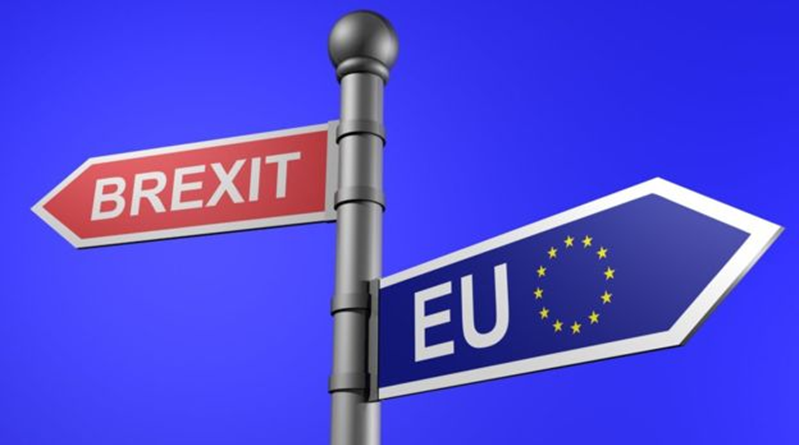Brexit: UK and EU strike last minute post-Brexit trade deal – NBC News
With just days until the deadline, the United Kingdom and European Union agreed to a post-Brexit trade deal Thursday, signaling the end of a four-year saga that engulfed British politics and exposed a deep cultural divide that shows no signs of healing.
“A deal is done,” a U.K. government spokesperson said in a statement, which was quickly followed by a triumphant tweet from Prime Minister Boris Johnson.
“This agreement allows the beginning of a new relationship between the U.K. and the E.U.,” the spokesperson said. “One that we have always wanted — a thriving trading and economic relationship between a sovereign U.K. and our European partners and friends.”
Ursula von der Leyen, president of the European Commission, the E.U.’s executive branch, said at a news conference: “It was a long and winding road but we have got a good deal to show for it.”
She said rather than joy she merely felt “satisfaction and relief,” telling the British that “parting is such sweet sorrow” and urging the rest of Europe, “it is time to leave Brexit behind.”
Both sides will present the deal as a political win, saving the U.K. and remaining 27 E.U. members from the threat of a “no-deal” Brexit — widely regarded as a nightmare scenario that would damage economies on both sides.
In reality however, this deal is what experts call “hard Brexit” free trade agreement. It focuses largely on quotas and tariffs but does not avoid regulatory checks on goods at the border, something that experts have warned could cause disruption at ports, meaning price rises and even shortages.

The U.K. voted to leave the E.U. in 2016 and after years of tortuous politicking finally exited on Jan. 31 this year. Until Dec. 31 it is in a “transition period” with the remaining 27 E.U. countries, keeping the same rules while trying to negotiate a deal.
Negotiators have been shuttling between London and Brussels for months. For most of that time it seemed as though they would be unable to break the deadlock, which centered around how to stop Britain gaining an unfair advantage on its newly estranged neighbors, and fishing rights.
Now it’s been agreed by negotiators, the deal will need to be approved by E.U. leaders, who have been consulted constantly throughout the trade talks, and British lawmakers in the House of Commons, where Johnson holds a strong majority and the opposition Labour Party is not expected to stand in his way.
The initial Brexit vote was decided 52 percent to 48 but polls now consistently show that more people than not believe it was a mistake.
Brexit does still have millions of supporters. They see it as a way to break free from Europe’s shared rules, allowing Britain to strike its own trade deals and control its borders — usually a euphemism for tighter controls on immigration.
But independent economists are almost united in agreeing any form of Brexit will damage the U.K. economically, an unavoidable consequence of leaving the world’s largest political and economic club — not to mention its largest trading partner.
This year Covid-19 triggered the worst British recession in 300 years; the pain wrought by Brexit is forecast to be even worse, according to the government’s Office for Budget Responsibility.
The British government’s own estimates say even an ambitious trade deal between the U.K. and United States would not be enough to offset this damage.
Meanwhile political critics worry that in a world where Washington, Beijing and Brussels are vying for hegemonic influence, Britain leaving the E.U. will reduce it to a midranking outsider.
by Alexander Smith , NBC News




